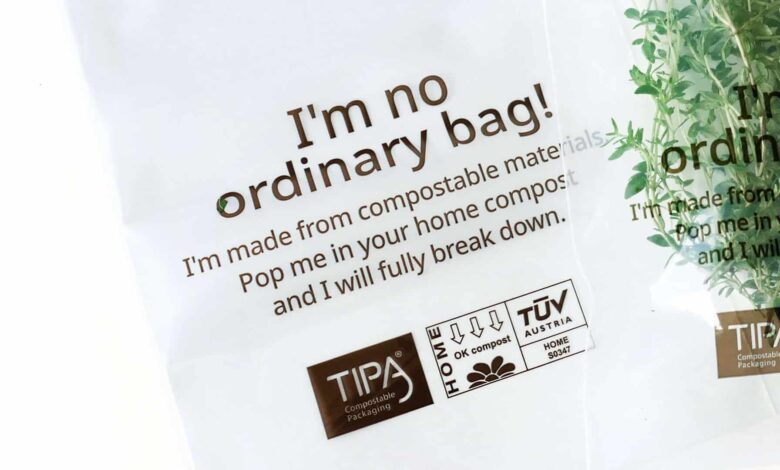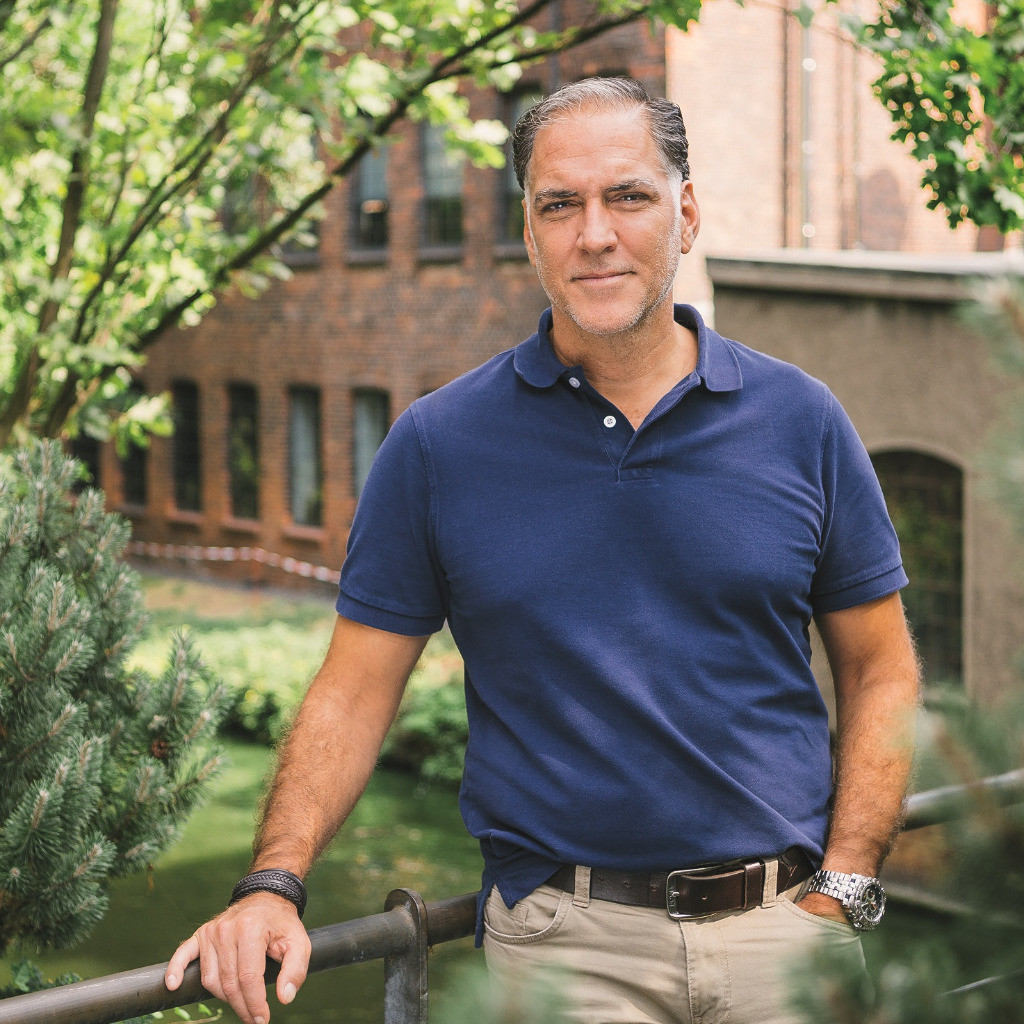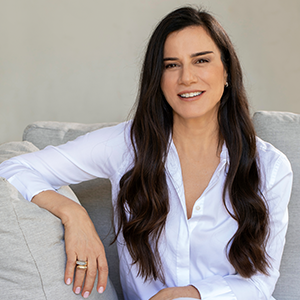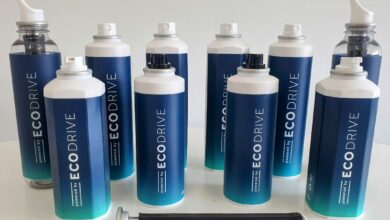
The urgency of confronting our plastic crisis has become starkly apparent. As the delicate balance of nature teeters under the weight of human consumption, the packaging industry finds itself at a defining crossroads. What once seemed like a revolutionary solution, plastic has now morphed into an unprecedented global crisis, contributing to over 350 million tons of material waste annually, a significant fraction of which ends up sullying our oceans. This is not a future challenge; it’s a present catastrophe that demands an immediate paradigm shift.
Amidst this backdrop, pioneers like Bio-lolutions, TIPA, and Treetop have emerged as guiding lights, rewriting the narrative of packaging and offering a beacon of hope. Their audacious commitment to sustainable and compostable alternatives stands as a rallying cry to realign our relationship with packaging materials, forging a path toward a future where the footprint of plastic pollution is diminished, and the harmony of nature is restored.
Eduardo Gordillo, CEO of Bio-lutions, introduces a paradigm that mirrors nature’s wisdom—where nothing goes to waste. From trees to compost, nature adheres to cycles—leaving no room for pollution. The packaging industry, however, opts for linear designs that yield plastic pollution. Gordillo’s approach with Bio-lutions takes a different avenue—harnessing agricultural residuals to create self-binding fibers for packaging. Through meticulous mechanical processes, materials like rice straw and banana stems become self-binding—resulting in packaging materials that minimize waste and support farmers. Gordillo’s words remain succinct yet powerful—encapsulating his motivation: “We are creating another income for them.”
Amid this crisis, visionaries like Gordillo are emerging, driven by the need to reshape the packaging narrative- a call for collective responsibility. As society grapples with mounting plastic waste, the imperative to reduce single-use plastics becomes evident. Compostable and biodegradable materials beckon, offering a solution that is not only functional but also environmentally regenerative. By embracing these alternatives, the world moves closer to a future where plastic pollution is tamed, and nature’s cycles are once again respected.

“This is a personal decision for me to use the last years of my life to work for the environment” — Eduardo Gordillo, CEO of Bio-lutions
Daphna Nissenbaum, Chief Executive Officer and Co-founder of TIPA, sheds light on the plastic predicament that plagues our environment—plastic’s steadfast persistence. “The main problem with plastic is that it isn’t going anywhere,” she asserts with a tone of urgency. Nissenbaum’s words resound as a rallying cry against the 60 to 70 years of plastic usage that has inundated our world. Plastic has infiltrated every facet of our lives, from single-use items to durable goods, becoming a pervasive pollutant that refuses to biodegrade. Nissenbaum deftly highlights that the conventional approach to plastic packaging isn’t aligned with nature’s cycles. It’s a system that perpetuates waste, where plastics accumulate instead of transforming into valuable resources. Nissenbaum points out, “You can’t make compost out of plastic; you can’t make wire gas out of plastic; you have to get it out.” Her words underscore a fundamental problem that the packaging industry must address: the insidious permanence of plastic. The challenge lies in the pervasive ubiquity of plastic in our daily lives. It’s a matter of consumer choice—whether there is any choice at all. She explains that we are bombarded by plastics in our transactions, engagements, and consumptions, and these choices are often dictated by the packaging industry’s design.

“You can’t make compost out of plastic; you can’t make wire gas out of plastic; you have to get it out.” — Daphna Nissenbaum, Chief Executive Officer and Co-founder of TIPA
In response, TIPA has engineered a package that embodies a dual purpose: it is fully compostable and closely mimics conventional plastic, offering an alternative that bridges the gap between convenience and eco-friendliness. By embracing nature’s packaging principles, TIPA’s compostable materials break down into smaller parts when discarded, fostering a process of decomposition by bacteria, and eventually yielding compost that enriches the soil. Nissenbaum’s perspective encapsulates the essence of the solution—nature’s circle brought into the packaging industry, challenging the conventional linear model and setting the stage for a greener tomorrow.
This approach aligns seamlessly with the circular economy, a vision where waste becomes virtually nonexistent. The ambition to replace conventional packaging with compostable alternatives gains momentum, presenting a system where food waste is repurposed, treated, and transformed into soil-enriching compost.

Jacopo Arpesani, Chief Operating Officer of NATOORA, highlights the dual impact of TIPA’s solutions: protecting products and minimizing environmental harm. The integration of compostable materials into existing supply chains simplifies adoption for brands, demonstrating that sustainable choices can be straightforward. “The consumer is at the heart of all this,” Pezani acknowledges, highlighting the pivotal role of informed choices.
The metamorphosis is palpable. TIPA’s commitment has led to the removal of nearly two million single-use plastics in a year, a testament to the viability of compostable materials. A pivotal shift is occurring, as customers gravitate towards brands that prioritize sustainability, shifting the landscape of consumer preferences.
In this evolving landscape, consumers actively seek products encased in packaging that mitigates ecological harm, while brands endeavor to align themselves with the growing chorus advocating for environmental stewardship. Visionaries—like Amir Gross—Founder of Treetop Biopak, are at the vanguard, propelling the journey towards more conscientious and environmentally attuned solutions. As the architect behind Treetop, a London-based enterprise specializing in compostable and biodegradable packaging, Gross finds himself leading a movement to reconfigure the packaging industry.
Treetop stands at the forefront of compostable packaging. The cornerstone of their approach tackles the environmental burden of plastics without compromising functionality. Gross’s philosophy is pragmatic: “We bridge the gap between technological advancements and market needs by offering innovative materials and novel solutions.”
“The essence of Treetop’s distinctiveness lies in our specialization in compostable packaging and the array of solutions we provide,” Gross states. Among Treetop’s offerings, their compostable bags stand out as practical choices for packing short-shelf life food products such as fresh produce or bakery items. These bags are equally suited for non-food items. Not only are they durable and puncture-resistant, but they’re also water-resistant and printable, adding to their versatility. With adaptable grades, they serve various purposes, from garment covers and shopping bags to bin liners—innovations addressing packaging needs while reducing the environmental footprint of short-lived items.
Treetop’s innovation lies in creating compostable packaging that mirrors nature’s cyclical principles. “While the notion of sustainability has frequently been entwined with elevated costs, Treetop defies this misconception,” Gross adds. “We have effectively developed cost-efficient formulas, facilitating the accessibility of sustainable packaging. Our streamlined production processes foster competitive pricing, rendering our offerings a pragmatic choice for environmentally conscious enterprises.”
Compostable bags, akin to nature’s orange peels and banana skins, decompose into fragments consumed by bacteria, culminating in nutrient-rich fertilizer. This innovation speaks to the heart of the issue, reducing the environmental footprint of disposable items while fostering a circular economy. Gross focuses on accessibility, noting that Treetop’s solutions are cost-efficient, making sustainable choices viable for conscientious enterprises.

“I anticipate a swift expansion in the acceptance of compostable solutions within the market.” — Amir Gross, Founder of Treetop Biopak
“Over time, I foresee sustainable packaging costs aligning with traditional alternatives, making conscientious choices accessible and appealing.” Gross added.
Gross’ personal journey is a testament to his unwavering commitment to ethical business practices. With over a decade of immersion in the packaging sector, Gross felt a compelling obligation to address the escalating crisis of plastic waste. He transitioned from marketing conventional plastic packaging to a sole focus on compostable alternatives. Gross’ motivation emanates from an entrenched belief that packaging, far from being the adversary, signifies progress. However, the exigency lies in confronting the residual pollution and waste, a challenge that Treetop confronts head-on.
Gross’s candor in acknowledging the gravity of the plastic pollution predicament is unmistakable. He underscores that plastic waste transcends ecological ramifications, emerging as a human rights concern, “The practice of exporting plastic waste to other nations for disposal accentuates global inequality and compounds environmental degradation. Treetop’s focuses on localized compostable solutions aligns with a mission that addresses ecological as well as socio-economic imbalances.” Gross envisions a future where compostable packaging assumes a mainstream rather than a niche role. In a landscape that underscores innovation and accountability, Treetop emerges as a pioneering force and their unwavering commitment to sustainable packaging solutions underscore their dedication to shaping a more sustainable future, one compostable package at a time. As the global community confronts the sobering implications of plastic waste, Treetop stands as a symbol of transformation, proffering not merely products but a tangible stride towards a cleaner, more sustainable world.
As global awareness deepens, the importance of adopting compostable and biodegradable packaging solutions becomes undeniable. These packaging solutions underscore a profound ethos – the need for conscientious consumption. As the reverent whispers of environmental advocates crescendo into a resounding call for change, pioneers like Gordillo, Nissenbaum, and Gross are orchestrating a transformation that holds the promise of redemption. Their ventures – Bio-lutions, TIPA, and Treetop – personify a collective yearning to transcend the era of single-use plastics, inviting a more symbiotic relationship with nature.
The dedication of Treetop Biopak extends beyond the creation of compostable bags, as he aims to diversify the range of sustainable solutions. In his words, “Treetop is dedicated to offering as many compostable solutions as the technology allows. Offering alternatives to materials that are used in very high volume in the market such as cling, stretch and cling films. Switching those applications to compostable would make a huge impact on companies’ plastic footprint.”
Stretch films, one of the fundamental components of the packaging industry, play a pivotal role in safeguarding goods during transit. Gross draws attention to their significance by explaining, “If you think of a stretch film around pallets, that’s one of the highest usage of plastic. It’s used around pallets. It’s used around items when you want to protect an item that’s going that is traveling.”
Cling films, ubiquitous in kitchens and catering, serve a multitude of purposes. Gross underscores their widespread usage, saying, “If you think of cling film in the kitchens, it’s used in vast volumes for home, but also in catering. Caterers use tons and tons of it, and hotels and restaurants use tons of cling film for their.”
Shrink films, another critical packaging material, find applications in bundling products together as protective packaging. Gross highlights their significance in the market, stating, “The Innovation is really in the range if you think of the shrink film string film again, it’s a simple application. But again that’s using very high volumes to bundle products together as protective packaging.”
Transitioning to compostable packaging can pose challenges, especially in terms of cost. Gross acknowledges these challenges, stating, “The plastic in compostable packaging is generally two to three times more than conventional plastic because there’s a very wide range of things that they need to consider.”
Investor demands are playing an increasingly critical role in the corporate world. Amir Gross underscores this by noting, “The raw materials that make up compostable packaging are more expensive than conventional plastic and the production processes are also more costly. But over the past couple of years, we have seen growth in the supply of compostable raw materials and production capacity. Prices have been coming down accordingly”
Standinf at the intersection of environmental stewardship and packaging innovation, the imperative to combat plastic pollution becomes more apparent than ever. The journey through the insights of industry leaders such as Eduardo Gordillo, Daphna Nissenbaum, and Amir Gross reveals a collective commitment to redefining the narrative of sustainable packaging. Through ventures like Bio-lutions, TIPA, and Treetop, these pioneers showcase that a cleaner, more sustainable world is not just a vision but an achievable reality.
The transformative power of compostable and biodegradable alternatives echoes a profound shift towards a circular economy, where waste is minimized, and nature’s cycles are respected. The dedication of these visionaries extends beyond individual success, aiming to create a ripple effect across industries, challenging conventional practices, and fostering a more symbiotic relationship with our planet.
The importance of conscientious consumption and the adoption of eco-friendly packaging solutions cannot be overstated. The endeavors of these trailblazers underscore a collective responsibility to transcend the era of single-use plastics, making choices that resonate with both consumers and the environment. The journey toward sustainability is not just about products; it’s a stride toward a cleaner, more harmonious world that we can collectively shape, one compostable package at a time.



